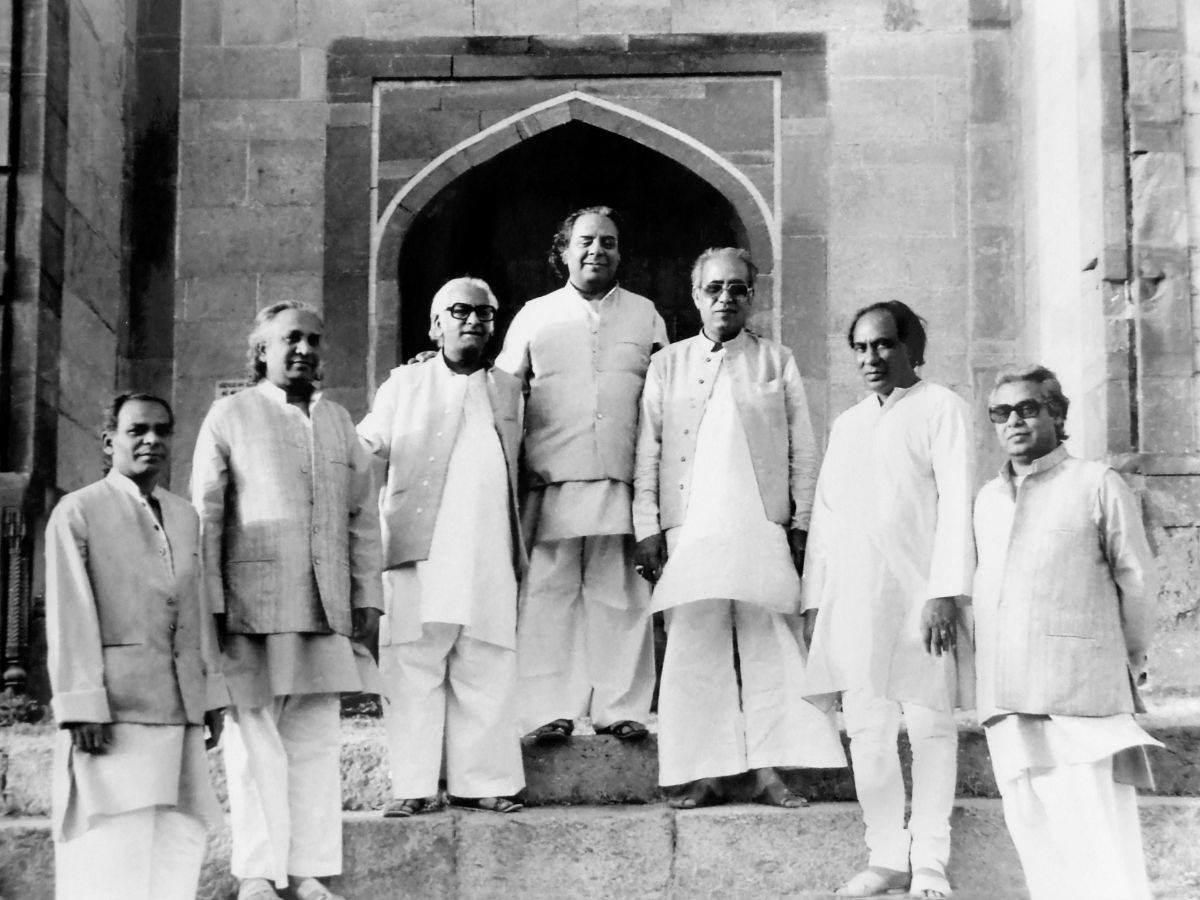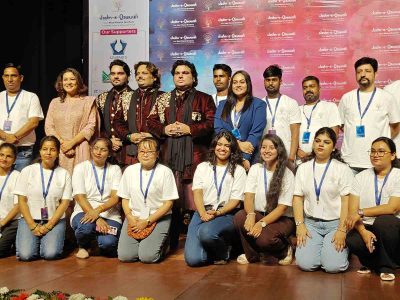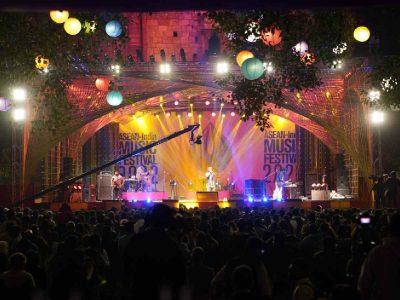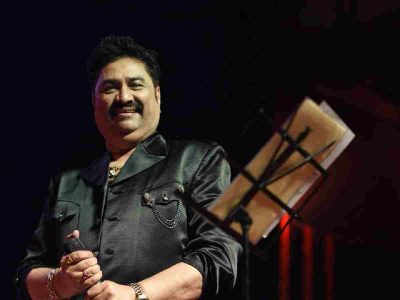A packed to capacity concert by Ustad Wasifuddin Dagar last week in Delhi’s India International Centre, in memory of his father Ustad Nasir Faiyazuddin Dagar and his elder brother Ustad Nasir Zahiruddin Dagar, was as usual, an emotional affair.
For nearly 40 years, a tribute concert has been held at the same venue on May 7, in remembrance of the brother duo who made Delhi their home some 70 years ago.
As musicians, the Dagar Bandhu impacted the lives of several people, in fact practically whoever they came in contact with, not just musicians.
Their house was always open to anyone who wanted to interact; the kitchen was geared to feeding several unexpected guests who stayed over for meals.
Their first floor flat in Nizamuddin East was the venue of many a musical soiree and discussion; the strains of the ‘tamboora’ lingering well after midnight, audible to late night walkers in the area.
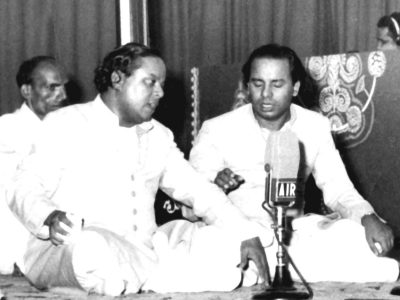
The family left Nizamuddin in 1988, after the death of Ustad Faiyazuddin Dagar, and moved to a ground floor flat allotted by the government in the Asiad Village complex. This soon became a cultural hub; visiting musicians would pop in, outstation disciples even stayed over temporarily, dossing down on the floor!
Once again, the music and food of the establishment was well known; they were the most generous hosts in both arenas. In 2022, Wasifuddin Dagar had to re-locate his family to Gurugram, disrupting the established routine of his disciples and friends.
Dagars’s music is indeed an enviable heritage. The Dagar family have had the rare honour of continuously producing practising classical musicians for 20 generations, for some 500 years. It is believed the tradition started with a disciple of the legendary Swami Haridas who lived in Vrindavan. The family was from the village of ‘Dagur’ and the music they represented came to be called ‘Dagarvani’. Today it is the most widely heard form of ‘dhrupad’, with practitioners in Europe, US and of course all over India.
The Dagars must have moved all over India, performing in various courts; this slice of history is not known today. The branch that took the music to a world stage was descended from Ustad Haider Khan, in the last century. He was the elder brother of the well-known patriarch of music, Behram Khan who it is believed lived over 120 years. Whilst in Banaras, it is believed he interacted with Muthuswamy Dikshitar, one of Carnatic music’s Trinity, whose compositions definitely reveal ‘dhrupad’ influence.
Behram Khan’s great-great grand nephew, Ustad Wasifuddin Dagar counts among his many disciples a few students originally trained in Carnatic music.
The progeny of the two sons of Haider Khan are known to our generation.
The sons of Ustad Ziauddin Dagar moved from Udaipur to Bhopal and Mumbai and taught many practitioners. The four sons of Ustad Nasiruddin Dagar took ‘dhrupad’ to the West; the first to do so were Ustad Nasir Moinuddin and Aminuddin Dagar, who lost their father when not even in their teens.
A poignant anecdote about their musical training has been recorded. Having been told he had only 10 years to live, Ustad Nasiruddin Dagar understood he needed to cram a lifetime’s knowledge into his two older sons in just a decade. His sons were young, yet he trained them for an hour at a time daily, three times in a day: morning, afternoon and evening.
Slowly he increased this to two hours at a time, and eventually took it up to an astounding three hours at a time. In today’s world, it is inconceivable to imagine anyone training in music like this, and specially not young preteens.
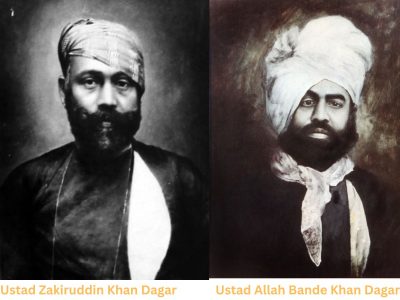
By the time the Ustad passed away in 1936, the duo were equipped to take their family’s music to the world. In an interaction, Ustad Aminuddin Dagar confessed he only knew for sure that his father loved him, when he felt his hand on his head whilst half asleep. Ustad Nasiruddin Khan did not dare to reveal a softer, paternal side to his sons as he had too much at stake to teach them and not enough time.
The older Dagar Bandhus’ first overseas trip was in the early 1950s. They sang as a duo, and while singing, also undertook the musical training of their two younger brothers Zahiruddin and Faiyazuddin; the latter was only three when his father died.
The younger Dagar brothers, as they were known as, were prolific teachers, composers and performers. Even today, their disciples in France are continuing their training with Ustad Wasifuddin Dagar.
Interestingly, their iconic composition in Raga Adana ‘Shiva Shiva’ features in a plagiarism controversy and is the subject of a lawsuit. AR Rahman used the composition as Veera Raja Veera in the mammoth hit PS2 without giving credit to the Dagars.
Ustad Wasifuddin Dagar, who used to sing with his uncle after the untimely death of his father in 1986, is keeping the tradition alive, but as a solo singer. His concert at the Centre last week was redolent with treasured memories; as he said ‘this is my annual musical offering in memory of my Gurus’.
He ended with a composition of his uncle, “Hey Govind Hey Gopal, raakho sharan” in Raga Bageshwari, set to ‘Chautaal’, accompanied expertly on the pakhawaj by Pt Mohan Shyam Sharma. Sharma’s association with the family is over three decades old, as he had accompanied the Dagar Bandhu too.
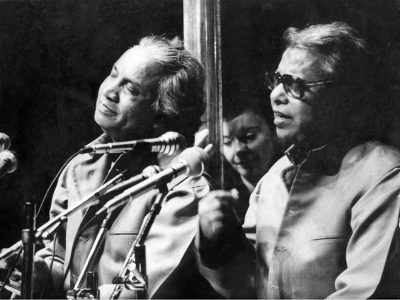
Indian music’s syncretic and unifying tradition is a precious heritage, which families like the Dagars have carefully preserved and transmitted; concerts like last week’s keep the music alive.

